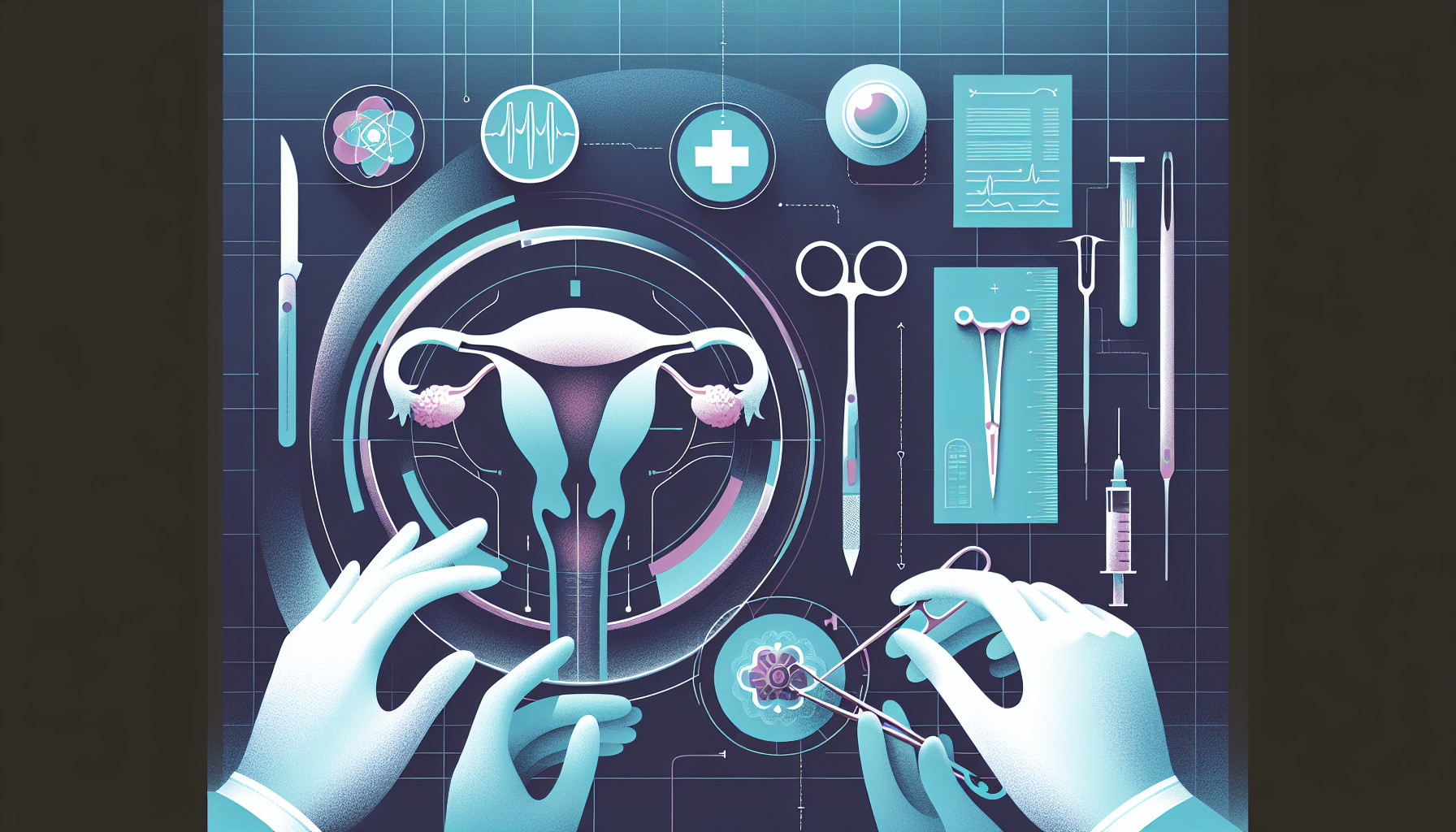Our Summary
Uterine fibroids are a common medical condition in women of reproductive age, which can cause problems like abnormal bleeding, pain, or infertility. This research paper aimed to evaluate the effectiveness and safety of a procedure called percutaneous radio frequency ablation (RFA) in treating this condition.
In this study, 35 women with 54 uterine fibroids were treated using RFA. Before the procedure, the researchers carried out tests to determine the size and location of the fibroids, and also to measure the amount of pain and bleeding the patients were experiencing. They also took blood samples to measure hemoglobin and hematocrit levels.
After the RFA treatment, the researchers found that the patients’ hemoglobin levels had significantly increased, suggesting less bleeding. The size of the fibroids had also significantly decreased. Furthermore, the patients reported experiencing less pain and bleeding than before the treatment.
In conclusion, the study suggests that RFA is a relatively safe and effective treatment for uterine fibroids. It can be used to treat fibroids of different sizes and locations, reducing the need for more invasive procedures.
FAQs
- What is percutaneous radio frequency ablation (RFA) and how is it used to treat uterine fibroids?
- What were the results of the study on the effectiveness of RFA treatment for uterine fibroids?
- Is RFA a safe treatment option for uterine fibroids of different sizes and locations?
Doctor’s Tip
A helpful tip a doctor might tell a patient about uterine ablation is to discuss the potential benefits and risks of the procedure with their healthcare provider. It is important to have a thorough understanding of the treatment and its potential outcomes before making a decision. Additionally, patients should follow post-procedure care instructions provided by their doctor to ensure the best possible recovery and outcome.
Suitable For
Patients who are typically recommended uterine ablation are those who have symptomatic uterine fibroids causing heavy menstrual bleeding, pelvic pain, pressure or fullness in the lower abdomen, frequent urination, or difficulty emptying the bladder. These symptoms can significantly impact a woman’s quality of life and may require treatment to alleviate them. Uterine ablation is often recommended for women who have completed childbearing or do not wish to have children in the future, as it can affect fertility. It is important for patients to discuss their symptoms and treatment options with their healthcare provider to determine if uterine ablation is the right choice for them.
Timeline
Before uterine ablation:
- Patient may experience symptoms such as heavy menstrual bleeding, pelvic pain, and infertility
- Patient undergoes tests to diagnose the presence of uterine fibroids and assess the size and location of the fibroids
- Blood tests may be conducted to measure hemoglobin and hematocrit levels
- Patient may have tried other treatments such as medication or hormone therapy
After uterine ablation:
- Patient undergoes the RFA procedure to treat the uterine fibroids
- Hemoglobin levels increase and bleeding decreases after the treatment
- Size of the fibroids significantly decreases
- Patient reports experiencing less pain and bleeding post-treatment
- Follow-up appointments may be scheduled to monitor the effectiveness of the treatment and address any potential complications
What to Ask Your Doctor
Some questions that a patient should ask their doctor about uterine ablation include:
- What is uterine ablation and how does it work?
- Am I a candidate for uterine ablation?
- What are the potential risks and side effects of uterine ablation?
- How long does the procedure take and what is the recovery time?
- Will uterine ablation affect my fertility or future pregnancies?
- What are the success rates of uterine ablation in treating uterine fibroids?
- Are there any alternative treatments for uterine fibroids that I should consider?
- How often will I need follow-up appointments after the procedure?
- Can uterine ablation be performed on an outpatient basis or will I need to stay in the hospital?
- Are there any lifestyle changes or precautions I should take after undergoing uterine ablation?
Reference
Authors: Yüce G, Tayarer A, Keskin HL, Genc B, Canyigit M. Journal: Ginekol Pol. 2020;91(8):447-452. doi: 10.5603/GP.2020.0074. PMID: 32902841
